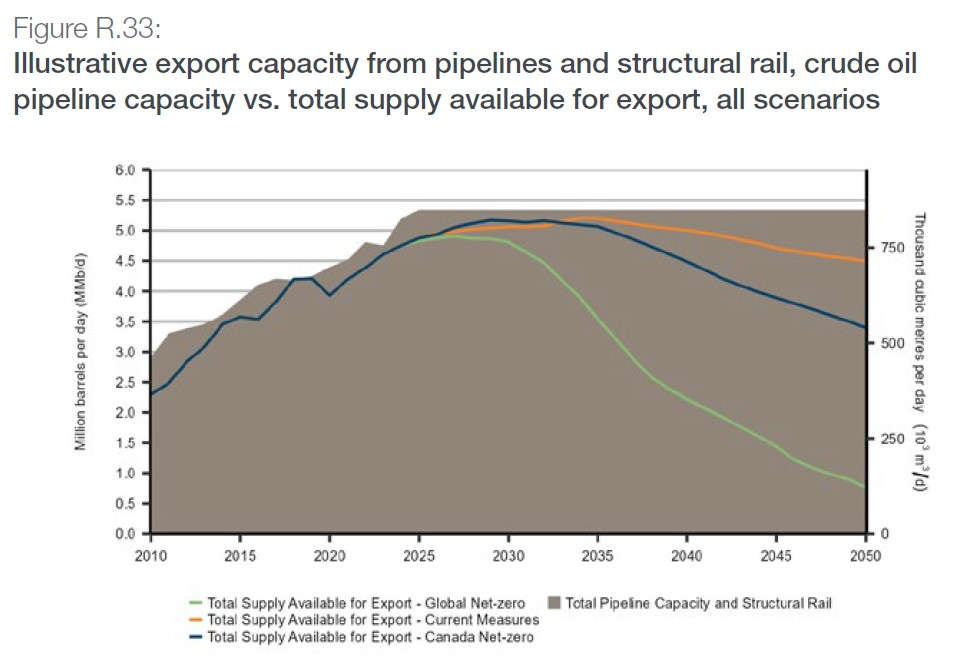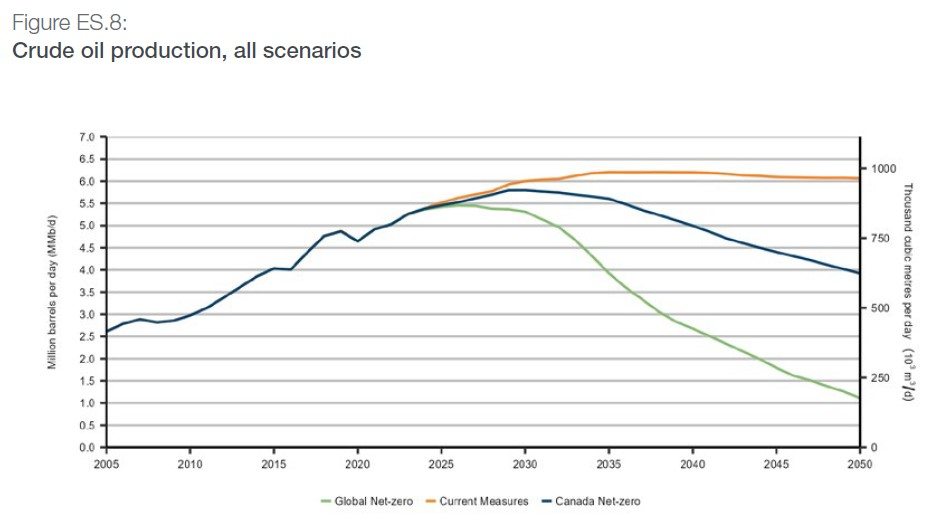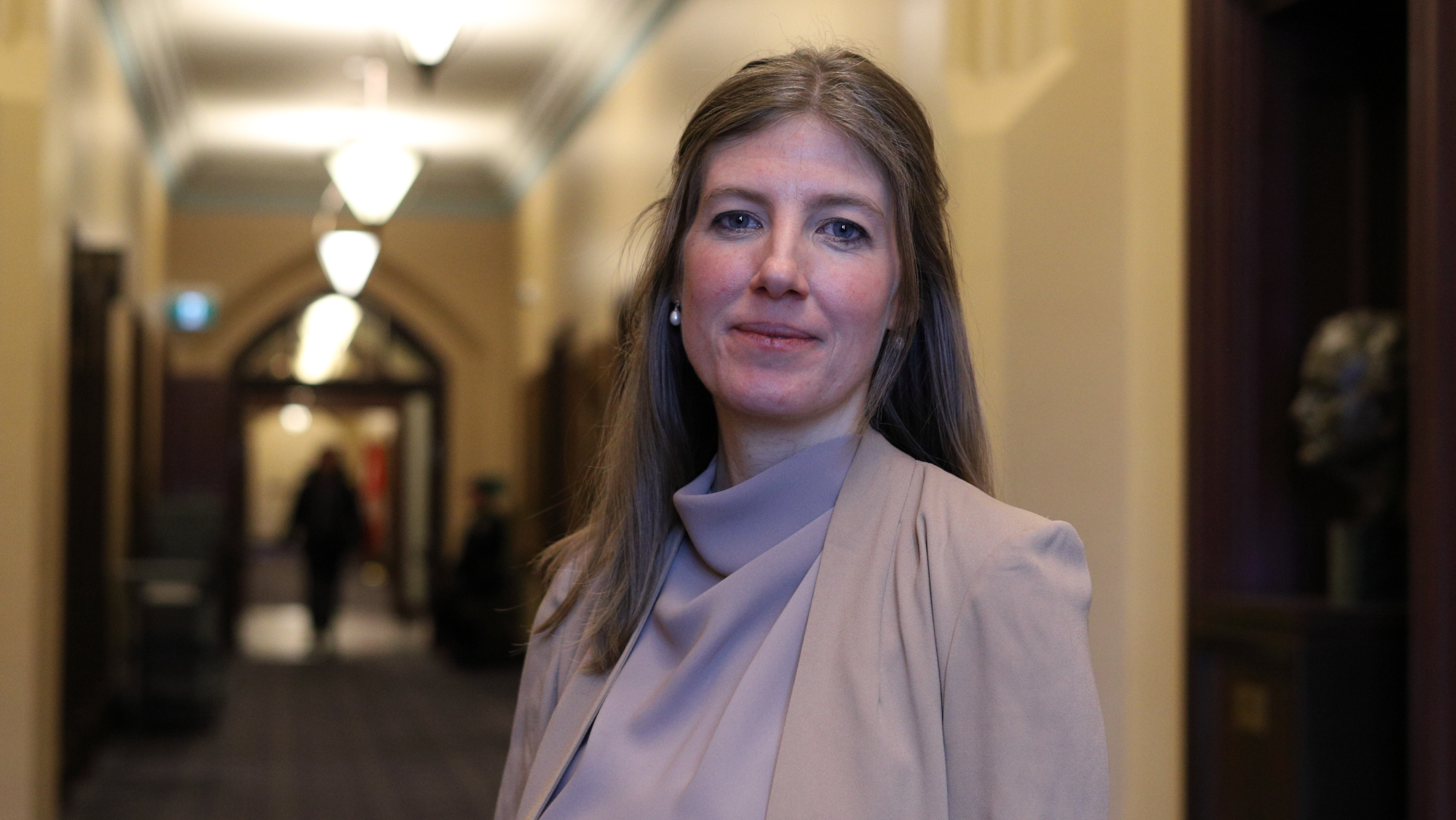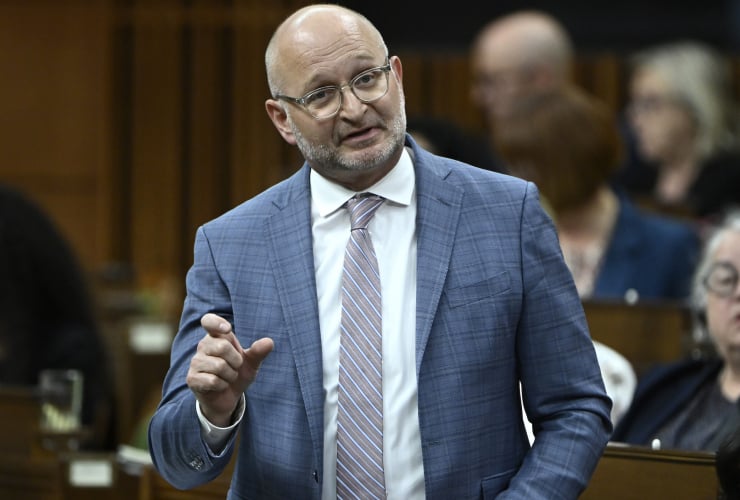Each year, Canada gives billions of dollars to fossil fuel companies to extract more oil and gas. Despite promises to phase out “inefficient subsidies” over a decade ago, the federal government does not yet have a comprehensive plan to do this and critics say they have had enough.
NDP environment critic Laurel Collins sent a strong reminder Thursday in a letter addressed to Finance Minister Chrystia Freeland and Environment and Climate Change Minister Steven Guilbeault. Part of the two parties’ supply-and-confidence agreement hinges on “developing a plan to phase out public financing of the fossil fuel sector, including from Crown corporations,” she wrote.
“To meet your government’s commitment to phase out fossil fuel subsidies by the end of 2023, it is critical that a framework to eliminate domestic fossil fuel subsidies is finalized and published as soon as possible,” the letter reads.
Collins told Canada’s National Observer she’s “frustrated with the continued delays” and the letter is part of an ongoing push to force the federal government into phasing out these subsidies faster. The federal government has pledged to end fossil fuel subsidies by the end of this year but has continued pumping money into the sector. Support for oil and gas companies reached over $20 billion in 2022.
“These are billions of dollars that could be invested in renewable energy, in sustainable jobs, in the kinds of climate solutions we know are desperately needed right now,” Collins said.
Collins' letter comes on the heels of a report analyzing public support for fossil fuels tabled Tuesday to the House of Commons’ Standing Committee on the Environment and Sustainable Development, chaired by Liberal MP Francis Scarpaleggia. It includes recommendations along with dissenting opinions and separate recommendations from the Conservative Party of Canada, NDP and Bloc Quebecois.
Scarpaleggia recommended the federal government “ensure that public funds cannot be invested in any energy infrastructure that is at risk of becoming a ‘stranded asset’ during the energy transition.”
Collins says that “absolutely” should apply to the Trans Mountain pipeline expansion project (TMX). That project’s costs have ballooned to $30.9 billion, an astronomical increase over the initial construction cost estimate of $5.4 billion by Kinder Morgan, the pipeline’s original owner.
“There's no realistic scenario in which we're not losing public money because the government decided to buy a pipeline. It's mind-boggling,” she said. “Trans Mountain is an economic and environmental disaster.
“It’s critical we're not putting more public money on the line for what are clearly becoming stranded assets.”
Finance Canada told Canada’s National Observer it sees TMX as a “serious and necessary investment” that once complete, “will continue to benefit Canadians and the Canadian economy by creating good jobs, generating significant revenues, ensuring that Canada receives fair market value for our resources, and being an integral part of Canada’s long-term energy infrastructure.”
Experts, including the Parliamentary Budget Officer, have previously said the expectation of profit is unlikely given the unrealistic assumptions baked into the TMX business case — like it operating for 100 years. This week, the project’s business case was further undermined by Canada’s Energy Regulator (CER).
On instruction from Natural Resources Minister Jonathan Wilkinson, the CER for the first time modelled what demand for Canadian fossil fuels would be if net-zero policies were pursued. Those findings published Tuesday reveal demand for oil and gas plummeting, thereby eliminating the need for additional pipeline capacity.


Greenpeace Canada senior energy strategist Keith Stewart called the CER’s report a “big, flashing red light for stranded assets and pipelines.” That’s because, in the CER’s two net-zero scenarios (one in which Canada achieves its net-zero goals while the world doesn’t, and another in which Canada and the world collectively bring emissions down), both show demand falling significantly.
“In either of those cases, there's basically going to be very little or no oil going through the Trans Mountain pipeline, so they're not going to get paid very much, and they've known for years this was a risk,” he said.
Stewart said the CER forecasts reveal the existential threat facing oil and gas companies. Industry can talk about reducing the emissions it creates per barrel using technology like carbon capture, but the reality of a genuine energy transition is that they’ll be selling a lot fewer barrels relatively soon.
“There's a certain emperor has no clothes moment for a lot of the claims being made by fossil fuel companies, their political allies, and even people in the Liberal government who want to have it both ways; subsidize fossil fuels and get rid of them,” he said.
Commissioner of the Environment and Sustainable Development Jerry DeMarco called it troubling that his office has repeatedly sounded the alarm about fossil fuel subsidies undermining climate action and yet the subsidies persist. He also called it troubling that the CER only just published net-zero forecasts for Canada’s energy future because it means the regulator hadn’t seriously considered Canada’s international commitments.
But perhaps most concerning to the environmental watchdog is ongoing “policy incoherence.” DeMarco had previously used that phrase against the federal government after publishing a series of scathing reports in 2021 that took aim at some of Prime Minister Justin Trudeau’s major initiatives, including Trans Mountain.
DeMarco compared the effort to reduce planet-warming greenhouse gas emissions to pushing a boulder up a mountain. Pushing the boulder up involves pushing against market forces, market failures, individual actions and other factors that make climate change worse. But the government is also pushing against itself, he said.
Different departments are “actually opposing forces in some instances,” he said. “When you see that sort of thing in Canada, you then say, ‘Well, now I understand why Canada is the only G7 country to have higher emissions today than when … all industrial countries came together in 1992 to fight climate change.’”
Since 1990, “no other G7 country has [had] any increase in emissions,” DeMarco added. “All of the others have decreased from say two per cent to close to 40 per cent, so we're really an outlier.”
DeMarco added that cutting fossil fuel subsidies is important not just because they undermine climate action, but because as the climate crisis deepens, “there’s a financial risk associated with doing the wrong thing.
“So you've got policy incoherence as one issue, and now you have essentially the danger that Canada will be using taxpayers’ money to acquire assets that may become either devalued or may become liabilities in the future.”
I have never understood why
I have never understood why we subsidize fossil fuels, especially when they are making record profits and neglect to clean up their abandoned wells they are required to do so.
Great reporting.
Great reporting.
I would add that the analysis, though long overdue, is concerned with only the regulatory impacts of net zero on oil production. The reality is that the economic impacts by disruptive cheap renewables conjoined with consumer choices favouring low or zero emission products (EVs. heat pumps...) and energy efficiency are already coming out of left field to hammer carbon dependency.
Most city planners are addressing climate change through better zoning, but there are still too many suburban laggards and provincial governments promoting sprawl. Progress is too slow on that front to reduce car dependency more quickly -- it will take generations -- therein EVs will have a role to play until high capacity electric rail transit is built out and the suburbs are converted to self suffient walkable towns.
We were promised reduced
We were promised reduced fossil fuel subsidies a decade ago. Neither the Conservatives nor the Liberals have the guts to do anything. Big Business of every type now controls politicians of every stripe whether fossil fuels, pharmaceuticals, agricultural, technological, even food and of course housing. And they all get their subsidies one way or the other






Comments